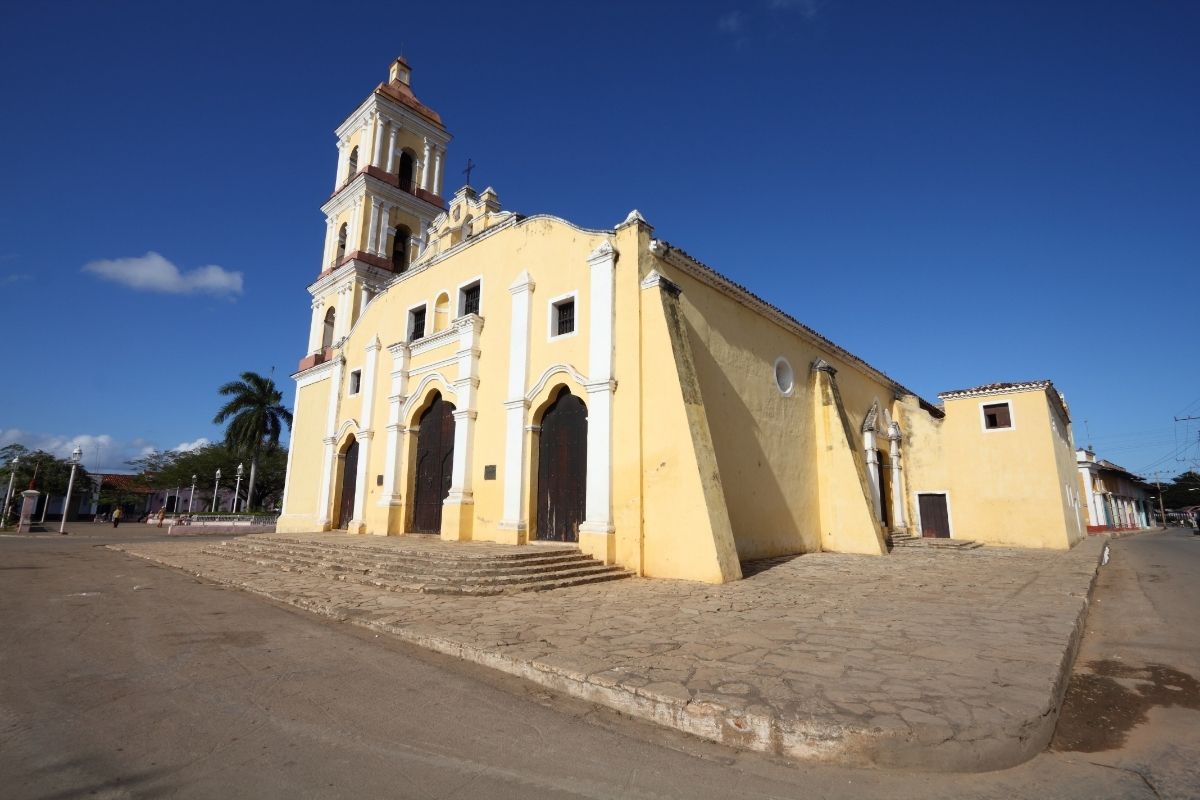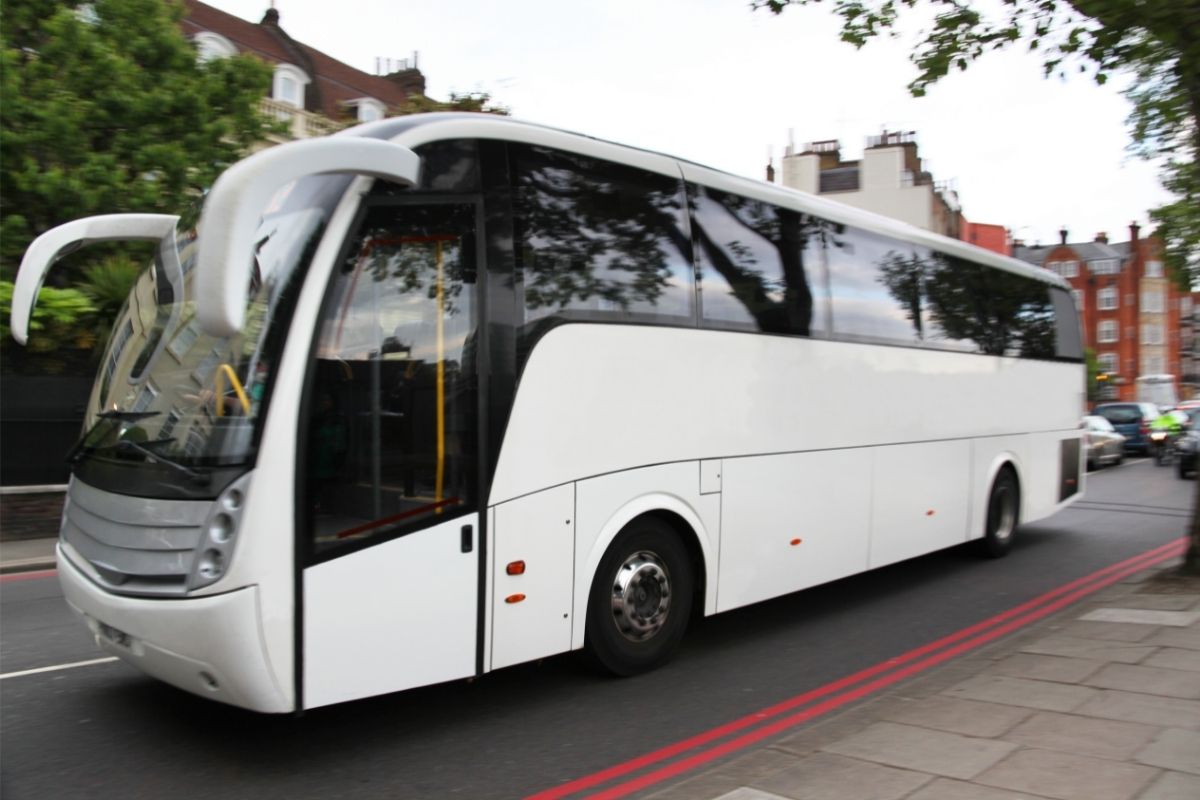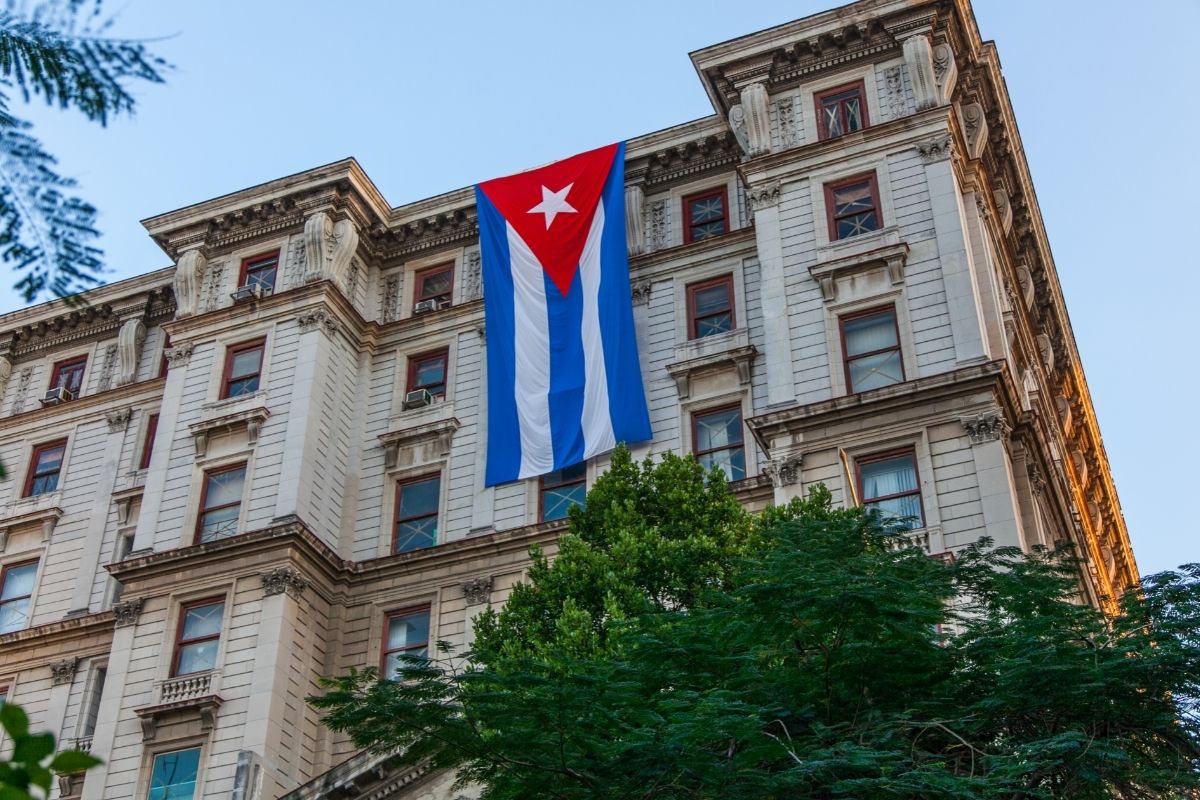For many thousands, if not millions, of people on earth, the dream is to retire to a Caribbean island and live out the rest of your days peacefully in that environment.
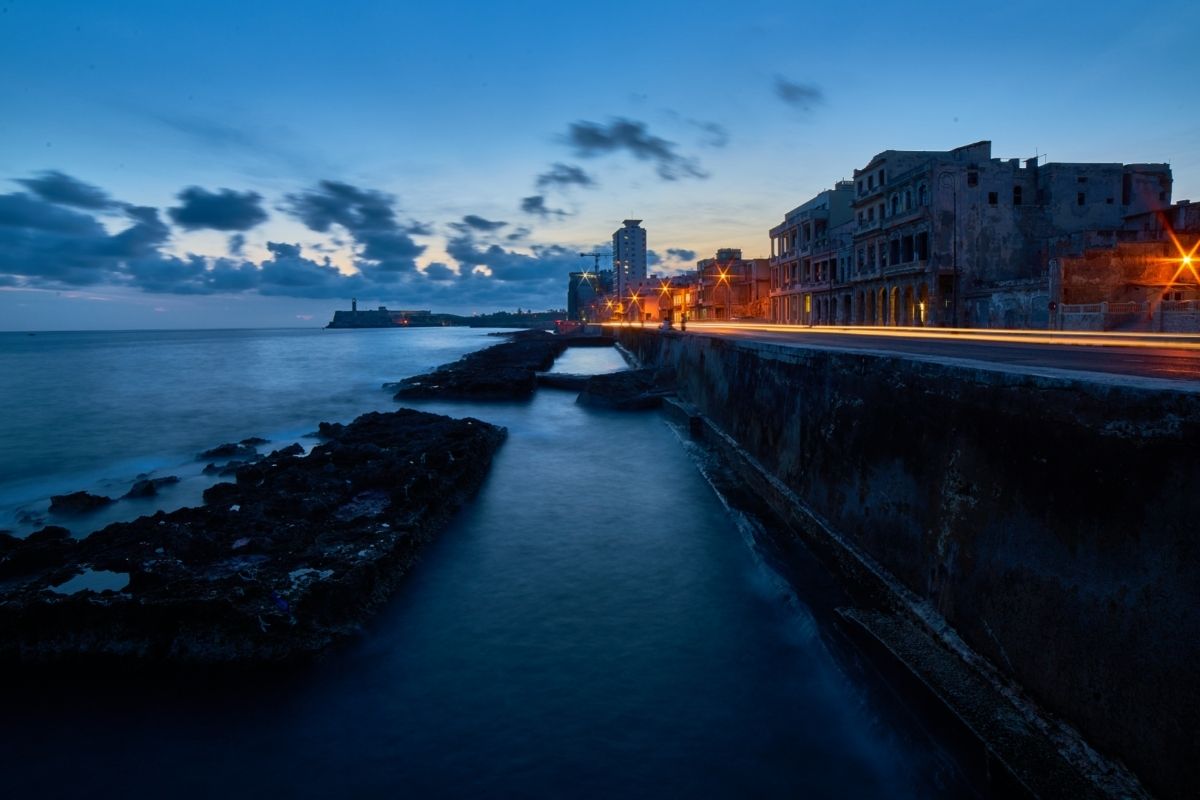
The warm sun, the cool breeze, and the beautiful ocean lapping up and down the shoreline.
So, which Caribbean island do you choose? The Cayman Islands with its wealth and ease of access? Jamaica, with its culture and reputation?
Maybe even the Bahamas for some good times and good company?
Well, how about Cuba? Cuba, we hear you cry, but surely not, after all can you even retire to Cuba, especially if you are an American?
In this article, we seek to answer this question and tell you whether you can retire to Cuba or not, and whether it is affordable to do so.
Is Cuba Worth Retiring To?
Cuba has a bit of a tempestuous relationship with the United States, and both sides have their reasons.
This causes a bit of an issue when talking about retiring there, because while other countries will have reams of information about retiring in that country.
Cuba has very little except for by the most adventurous traveler.
However, this shouldn’t stop you. It might not be for everyone, but Cuba has far more to offer than you will see online.
The first thing to note is that Cuban’s are incredibly friendly and welcoming people.
Community is very important to Cuban culture, and it is a culture built around the communities of their towns and villages. As such, they love to talk and engage with anyone willing to have a drink with them.
Cuban’s are also very proud of their country and its existence.
The nation has undergone a lot of strife throughout the last few hundred years and so the people want to show off everything they have to offer about their home and culture.
From the music to the sights to the food to the people themselves, which brings us to point number 2: Cuban culture.
Cuban culture has been known around the world for many years. In fact, in the 1930s, Cuba was known as America’s summer playground, as thousands caught planes and boats to the island to experience the culture and scene.
Music is incredibly important to Cuba and the Cuban people, with music regularly playing in clubs, at festivals, and on the streets themselves.
Perhaps the best example of this is the Buena Vista Social Club. A lot of this music feeds back into the global music scene as well, with art and theaters taking much of the music and using it, like in the movie Vivo.
Another aspect of the culture is fashion. Cuban’s have a way of dressing and presenting themselves which is bright and colorful, while laid back and uniquely Cuban.
Another aspect of Cuba is the weather. My god, if you love the sun, then you will love Cuba.
The country gets around 300 days of sun each year, and the temperature ranges from around 18 degrees to 32 degrees every day.
Like many island nations, Cuba is unfortunately quite humid and muggy, which can be a problem for visitors.
It may take a day or two to adjust, but with the help of the constant light breeze going across the island and the sea right next to it.
You always have a little respite from the humidity, especially if you put on your swimming trunks and dive in.
Swimming isn’t the only activity with the island being varied in its environments with many people partaking in hiking, fishing, other water sports, and mountain climbing.
Cuba is an idyllic place for those who love the outdoors and the urban environment alike.
Living In Cuba As A Foreigner
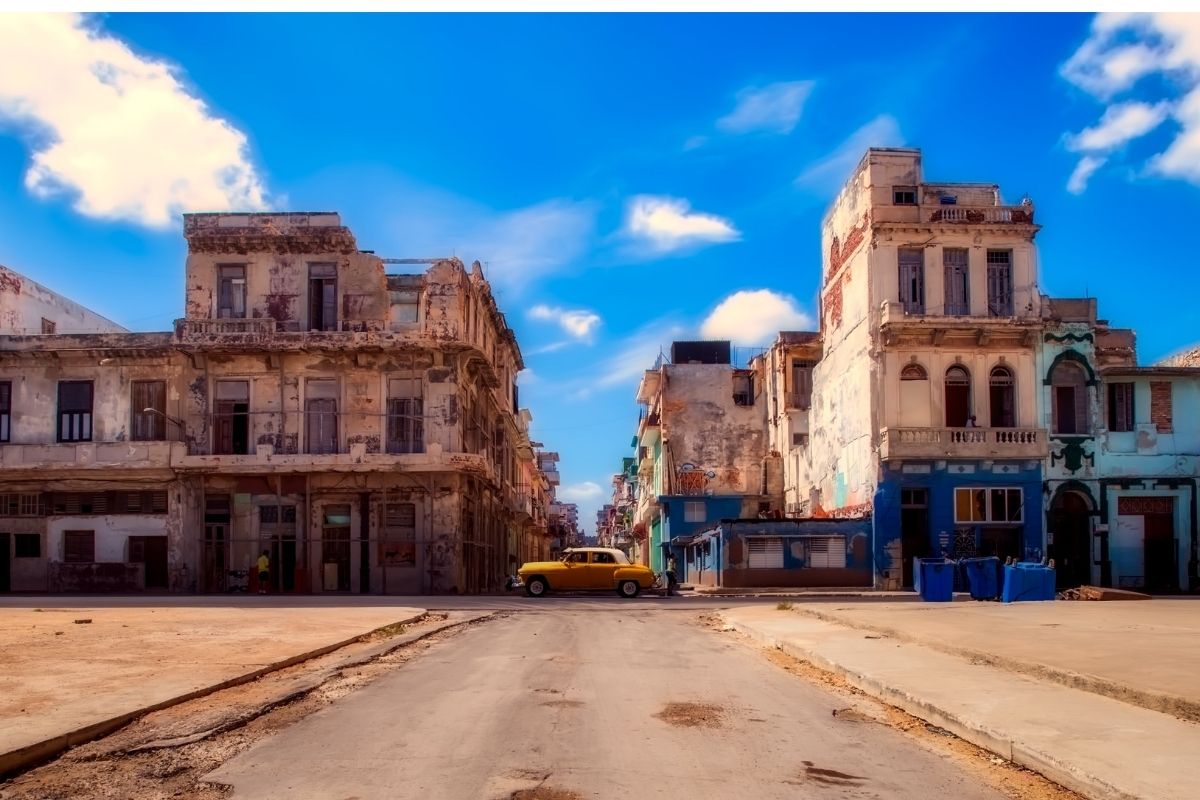
Although it is technically possible to become a permanent resident of Cuba, getting that residency or even a visa can be quite difficult.
Don’t get us wrong, getting a tourist visa is quite easy, but that also means you will eventually leave.
Getting a work permit and business visa to stay in Cuba for the foreseeable future is quite difficult for a foreign national.
The only way you can guarantee your stay in Cuba for the long haul is if you marry a Cuban national, which if you are retired may not be what you want.
It is becoming easier for those who want to live in Cuba to do so, though, and the Cuban government has become very open to the idea of snowbird visas.
Snowbird visas are basically special visas for people over a certain age for a certain time.
In Cuba, the snowbird visa for Americans is 6 months in total and is quite easy to renew for another six months routinely.
After the six-month period, you must leave, but you only need to leave, it doesn’t have any clause for coming back.
As such, you could fly out of the country for a weekend or week, renew your visa, and then come back to Cuba.
The first step to doing this is to get a tourist card at the Cuban embassy, which you can then make into a snowbird visa when you enter Cuba.
The main problem with these visas is that there are restrictions on foreigners owning property in Cuba, which can be very chaffing to the expat community of the country. This happens in other countries as well, but it is always disheartening.
There are more movements in the direction of allowing expats to buy apartments or property, but often these are not freehold properties.
Instead being leasehold and often only for around 50 to 75 years per hold. For retirees, this may be perfect, but for others it may seem like a waste to dump money on.
The only way to own freehold property easily in Cuba as a foreign national is in internationally owned complexes, which unfortunately is much more akin to being in America, not Cuba.
Most retirees and expats in Cuba live in ‘Casa particulares’ which is homestay accommodation that you pay between $10 to $30 per night.
Costs Of Living In Cuba
Cuba is insanely affordable as a country, as everything is produced locally, so there are no import or export costs to consider.
The utility bills and rent are also incredibly low, with it being as little as $150 a month outside of Havana’s city center in some areas.
The cost of living in Cuba is about 20% lower than that of the US and healthcare is also free and a fundamental human right under the Cuban government, making it one of the cheapest countries to reasonably retire to.
It should be noted that you cannot use US dollars or convert them in Cuba. Therefore, we encourage you to take British pounds or Euros, as the exchange rate is better and these can be converted.
Another thing to note is that cards from American banks don’t work at the ATM’s, so try getting an international bank before going.
Conclusion
You can retire in Cuba in a roundabout way using the snowbird visa system.
However, apart from this hiccup, retiring in Cuba is a wonderful idea and may be something that you not only want, but deeply enjoy.
- What Is The Largest Island In Cuba? - September 19, 2022
- Havana – Why Is It Cuba’s Most Exciting City? - September 19, 2022
- Cheapest Time To Visit Cuba (Ultimate Guide) - September 19, 2022

